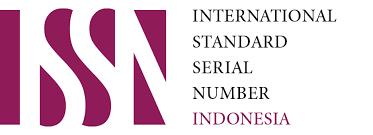The Effectiveness of Playing Letter Cards on Early Childhood Memory Abilities at the Taman Bocah Asembagus KB, Situbondo Regency
DOI:
https://doi.org/10.19184/jlc.v8i2.51819Keywords:
playing letter cards, memory ability, early childhoodAbstract
This study aims to examine the relationship between the effectiveness of playing letter cards and the memory skills of early childhood children at the Taman Bocah Asembagus Kindergarten, Situbondo Regency. The background of this study is based on the difficulties experienced by some children in remembering the alphabet, so additional media are needed to help the learning process. The method used in this study is a quantitative approach with a correlational research design. The research respondents consisted of 22 children selected using a purposive sampling technique, representing the entire population of children attending school at the Taman Bocah Asembagus Kindergarten. Data were collected through observation and documentation, which were then analyzed using correlation analysis to determine the relationship between the two variables. The results showed that there was a significant relationship between the effectiveness of playing letter cards and children's memory skills, with a correlation coefficient value (r count) of 0.663, indicating a strong relationship. Further analysis revealed that the relationship between the success of playing letter cards and children's memory skills was in the medium criteria (0.554), while the relationship between changes in playing letter cards and children's memory skills was in the high criteria (0.616). Based on the results of the analysis, the null hypothesis (Ho) stating that there is no relationship between the two variables is rejected, while the alternative hypothesis (Ha) stating that there is a relationship is accepted. This study concludes that playing letter cards can effectively improve the memory of early childhood, with a significant contribution to their cognitive development. Therefore, it is recommended for educators and parents to integrate the use of letter cards as an aid in the learning process. The results of this study are expected to be a reference for the development of out-of-school education and provide new insights into effective learning methods for children, as well as encourage further research in this field






.png)









